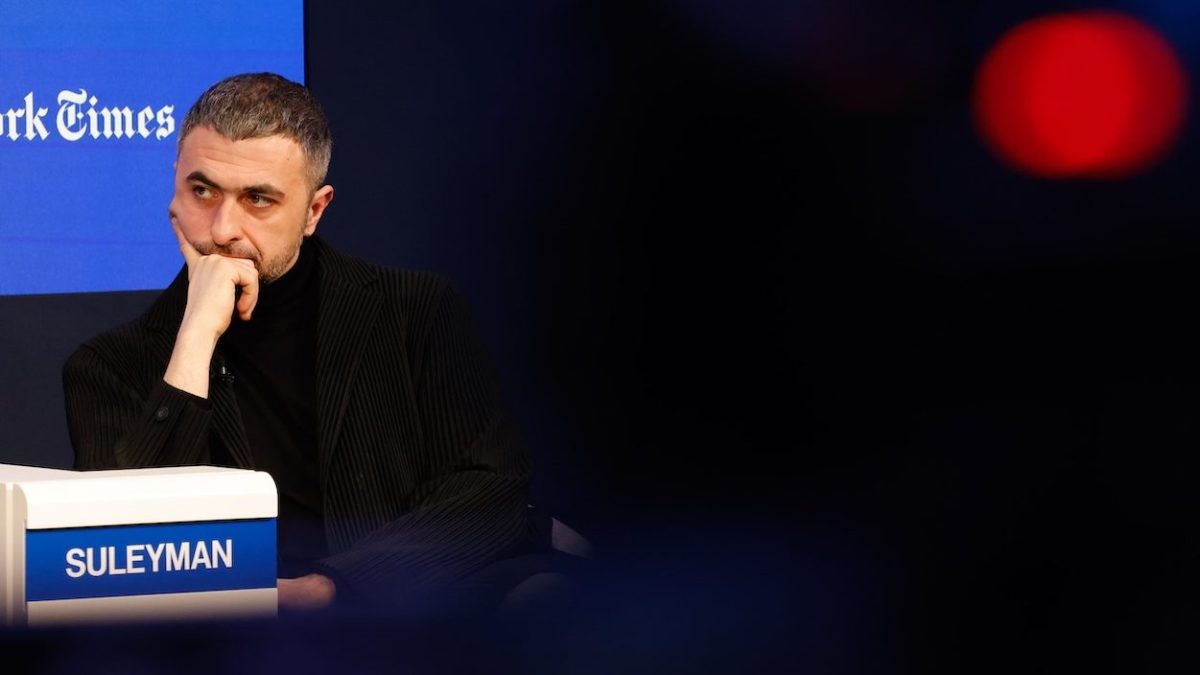Google loses appeal against EU’s $2.7B Shopping antitrust case, as bloc also wins $15B Apple state aid appeal | TechCrunch
Google has once again lost in its bid to overturn a 2017 antitrust decision by the European Commission. The bloc found its shopping comparison service had broken competition rules — hitting Alphabet, Google’s parent, with an at-the-time record-breaking €2.42 billion penalty (around $2.7 billion at current exchange rates) and ordering changes to how it operates the service.
Google appealed the decision and, in November 2021, the General Court of the European Union largely dismissed the challenge. It confirmed that self-preferencing its own shopping service in general search results was anti-competitive, harming rival shopping comparison services, and upholding the Commission’s penalty. However, the Court did find the Commission had not established that Google’s conduct could have had anticompetitive effects on the market for general search services as a whole — hence annulling that portion of the finding.
Google appealed against the EU’s decision a second time, petitioning the EU’s highest court — the Court of Justice of the EU (CJEU) — which on Tuesday handed down another ruling that won’t be to the search giant’s liking.
The CJEU agreed with the General Court’s analysis. “[I]n light of the characteristics of the market and the specific circumstances of the case, Google’s conduct was discriminatory and did not fall within the scope of competition on the merits,” the court wrote in a press release.
Commenting on the Google Shopping case at a press conference this morning local time, the EU’s competition chief Margrethe Vestager dubbed it “a landmark in the history of regulatory actions against Big Tech companies”. “It was one of the first significant antitrust cases brought by a competition agency against a major digital company and I think this case marked a pivotal shift in how digital companies were regulated and also perceived,” she suggested.
In further remarks on the CJEU ruling, she said: “The Court of Justice confirms that, in certain circumstances, the favorable treatment of its own services by a dominant company can be a breach of Article 9(2) of the European treaty. This important judgment validates the Commission’s approach to such practices.
“We call them self preferencing. Of course a dominant company, as any other company, are free to innovate in all fields but in doing so they should compete on the merits of their innovation. However, they cannot lean on the competitive advantage that they hold because of their market power.”
“Going forward, the Commission will, of course, make sure that the principle enshrined in this judgment — which is now final — is upheld to the benefits of all European consumers,” she added.
Contacted for a response to the CJEU ruling, Google spokesman Rory O’Donoghue emailed a company statement in which it expresses disappointment. “We are disappointed with the decision of the Court. This judgment relates to a very specific set of facts. We made changes back in 2017 to comply with the European Commission’s decision. Our approach has worked successfully for more than seven years, generating billions of clicks for more than 800 comparison shopping services.”
This could be the end of the road for Google’s appeal against the Shopping decision as it may only seek to challenge the CJEU on a point of law.
The tech giant has filed several other appeals against additional Commission antitrust decisions. In September 2022, it lost another major appeal when the EU’s General Court largely confirmed the bloc’s €4.34 billion antitrust fine related to how the tech giant operates its Android mobile platform.
CJEU: Apple owes $15B in Irish back taxes & fees
In separate CJEU news, the Court handed down another major decision in the Commission’s favor on Tuesday.
This one loops in Apple as it’s related to a 2016 decision by the bloc that Apple benefited from illegal tax breaks in Ireland, between 1991 and 2014, and should have paid billions more in taxes. By September 2018 the iPhone maker had had to wire $15B in back taxes and penalties to the EU (to be held in escrow until the conclusion of any legal challenges). However in July 2020 Apple (and Ireland) won an appeal when the General Court annulled the EU’s decision.
The Commission appealed that reversal and on Tuesday the CJEU set aside the General Court’s judgement, finding — to the contrary — that Ireland granted Apple unlawful aid which the country is required to recover.
Apple and Ireland may only appeal the CJEU decision on a point of law.
Reached for comment on the State Aid ruling, Apple spokesman Tom Parker emailed TechCrunch a statement in which the company expresses disappointment and seeks to frame the matter as not one of unpaid taxes but rather an issue of where taxes are paid. The tech giant also accuses the EU of seeking to “retroactively change the rules”.
“This case has never been about how much tax we pay, but which government we are required to pay it to,” it wrote. “We always pay all the taxes we owe wherever we operate and there has never been a special deal. Apple is proud to be an engine of growth and innovation across Europe and around the world, and to consistently be one of the largest taxpayers in the world. The European Commission is trying to retroactively change the rules and ignore that, as required by international tax law, our income was already subject to taxes in the US. We are disappointed with today’s decision as previously the General Court reviewed the facts and categorically annulled this case.”
In her own remarks on the case outcome, the Commission’s competition chief, Vestager, expressed delight but also shock at the win — admitting the EU had taken legal risks to bring this appeal.
“I had prepared for stiff upper lip, facing a possible defeat,” she said. “But, you know, it was the win that made me cry. Because it is very important. It’s very important to show European taxpayers that, once in a while, tax justice can be done.”
Asked during the press conference whether she wanted to send a message to Big Tech following the two rulings, Vestager responded: “The real messenger today is the Court of Justice — confirming what we did, which was challenged.”
“The message from our choices that we have made, when we think that we have a case that we can prove… we will press on,” she cotninued. “So I think the message is that we will continue to do this. We will continue to push so that when we find abuses of dominant position we will go after it.
“I hope that the reading of today’s judgment is also a reading saying maybe it’s better to be a compliant company?
“Because one of the things that I’ve been wondering, in all these years, is I haven’t had just one Google case, not just two, not just three; we’re now on the fourth. We have reoccurring cases with Amazon. We now have a Facebook case that is ongoing. It’s the most admired, amazing, valuable companies on this planet, and yet, they are my most loyal customers.
“So if there is a message, well, it’s easier and better to be compliant — also because it challenges yourself and forces you to be more innovative than you would otherwise have been.”
This report was updated with comment from Google and Vestager’s remarks at the Commission’s press conference




